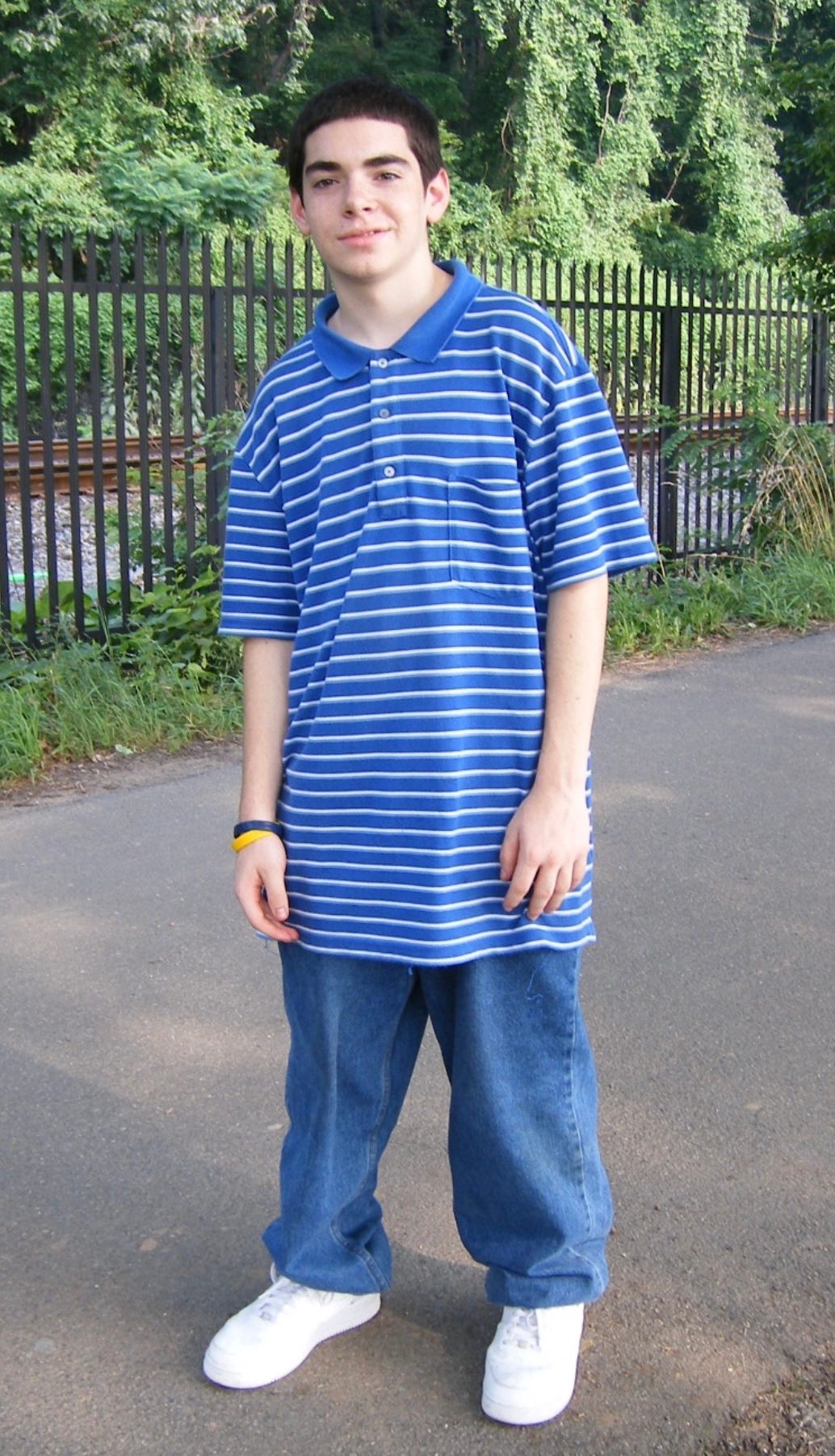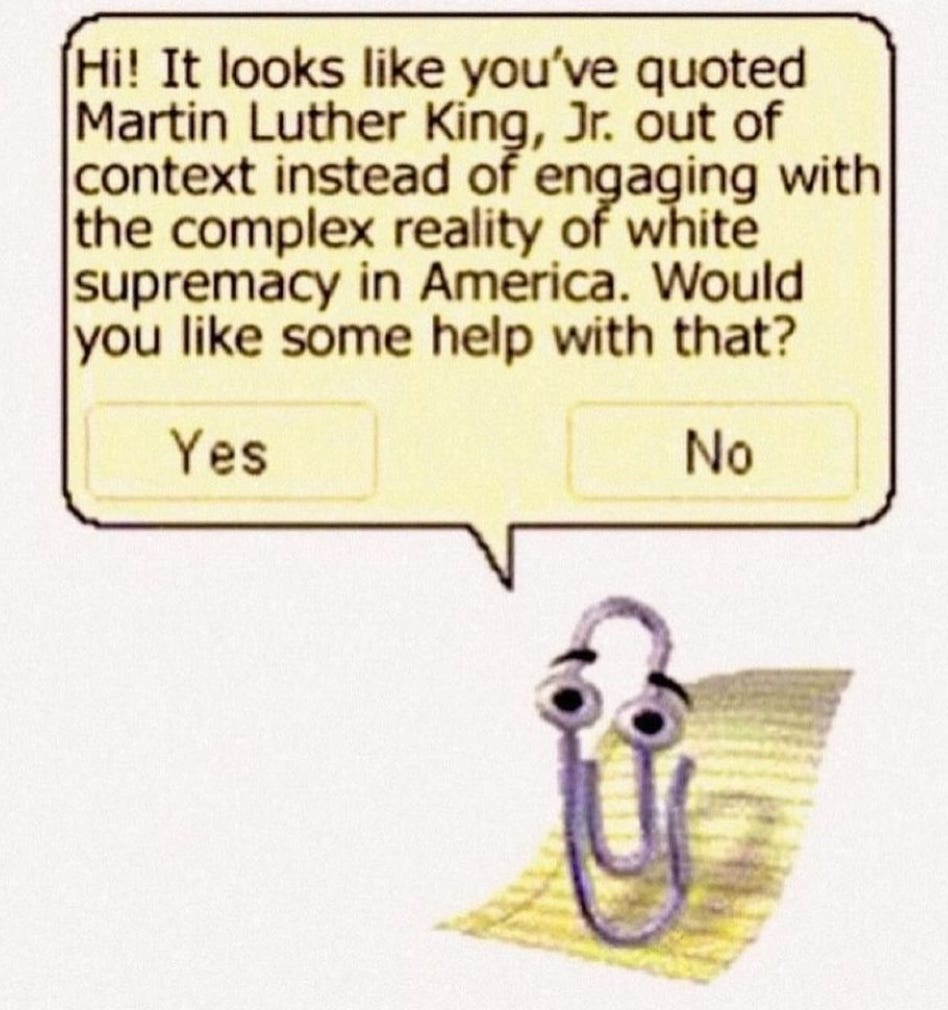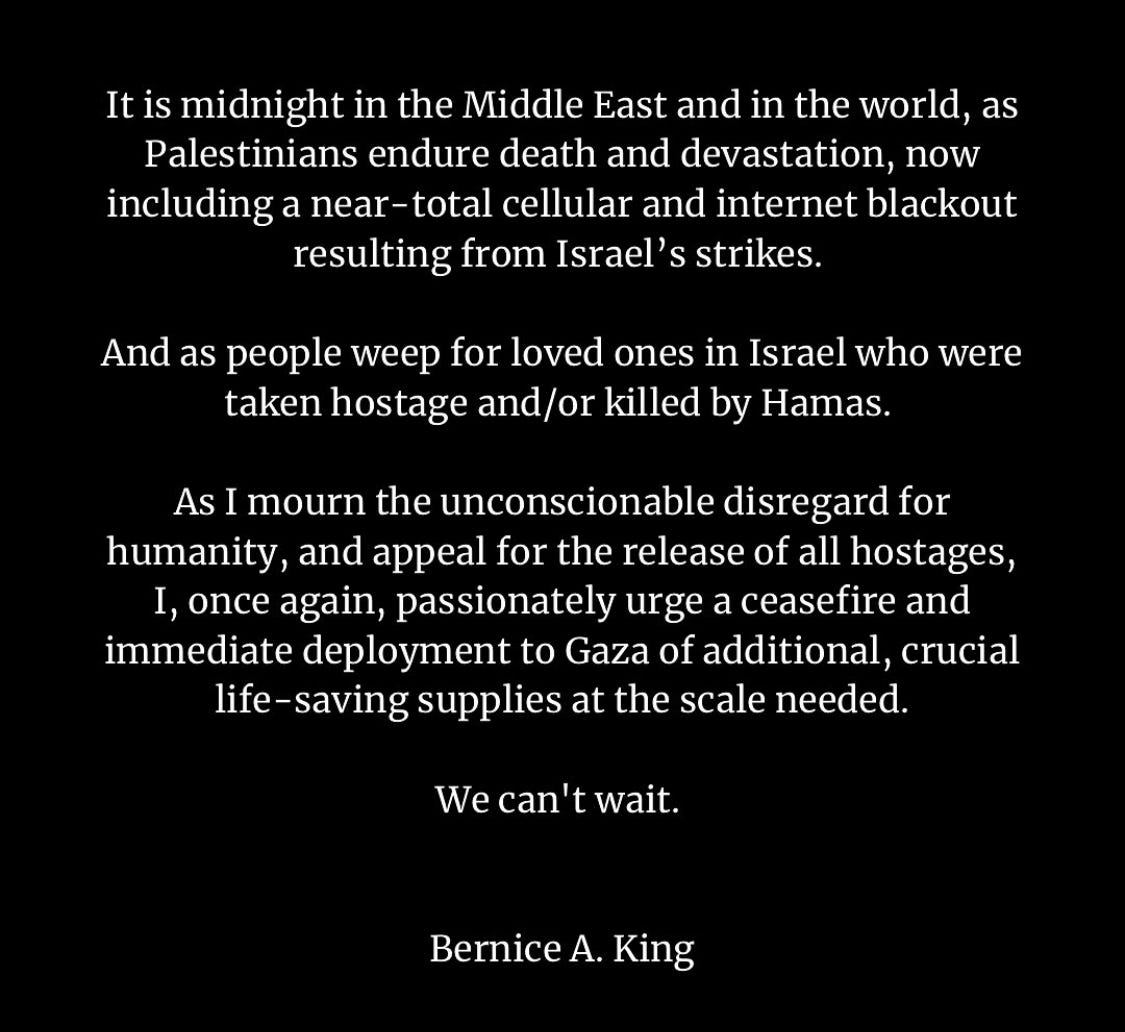His Radical Hope is for Me
Hope, but move your feet.
Three years ago, for MLK Day, I wrote this piece on the moment I realized that Dr. King’s message made humanity and the world better—not only limited to ‘Black History Month’—as it is often presented in schools. I realized his Love was also for me. I realized this when one of the first girls I fell in love with—at 16 years old, a mere timb-tag lil BX papi—pointed out we may not have been together were it not for him.

When she said that, it reminded me his Love was for me. His Love was a love that saw us one day holding hands, being just another couple, unburdened by unnecessary hate, existing in a world we could all thrive in. Both made completely extraordinary and un-extraordinary by who our ancestors were. Just joined by the same love from different names and faces.
And as an adult, who has learned much since being 16, including that Jnco jeans are indeed not “what’s really good on these boulevards,” I now understand how his ‘radical’ Hope is for me, too.
It’s the ‘radical’—aka being truthful to King’s full message—realization that Hope must be activated amongst our human condition.
And that’s just the word: activated. As Dr. King said, while “power without love is reckless and abusive,” “…love without power is sentimental and anemic.”
And in order for Love to have power, our hope must have action.
There’s an African Proverb frequently used by another civil rights icon, the late Congressman John Lewis: “When you pray, move your feet.” A refrain also found in the Christian Gospel, where Minister King also derived much of his perspective on life, Love, and Justice: “…let us love not with words or speech, but with actions” (1 John 3:18).
The constant, undeniable message in Dr. King’s words are words of action. Not words of abstraction. Not words for quotes for the sake of figurative language. If we write allegorically, it’s to have purpose. Allegories for action. Poetry for action. Loud, ‘Radical’ Love”, as Stanley Fritz wrote in his piece. Actionable Love. And yes, Actionable Hope.
So when you quote Dr. King this week for his birthday, for Black History Month this February, or any other time, remember:
Hope, but move your feet.
When you use his words as reminders of peace, remember:
Peace is not docile.
When you use his words to say what he would say, remember:
His message goes all the way through—it is not selective.
And when you use his words to justify current policy and politics, remember:
The man may have only lived to see 1968, but he said a lot about today.
Dr. King was a man of Justice. Justice is like a thread, and I follow it wherever it goes. Whatever picture it sews. That thread can lead to guns and people being part of a nationwide epidemic. It can lead to greed and labor intersecting with economic injustice and race—and race and economics intersecting with militarism and policing. And it would lead to empathy for any community that is or has been terrorized. Anyone who has loved ones held captive, lost families to mass violence and malnourishment, and it would certainly lead to condemnation of any state that has voiced or supported genocidal military campaigns.
Make no mistake, Dr. King would have called for a ceasefire in Gaza. Listen to the words of his daughter. She may know a thing or two about the direction of his moral compass.
So if you see yourself as a person of hope and peace; remember, that’s fine. But hope and peace, like love, are verbs. They necessitate attention, curation, and cultivation.
If you plan on quoting or paying homage to the great Martin Luther King, Jr.
Be a person of words and action. Hope—and crawl, walk, or run, but move your feet.





You make such an important point: hope is a verb and a practice, not just a nice sounding word.
I loved every word of this gorgeous writing.